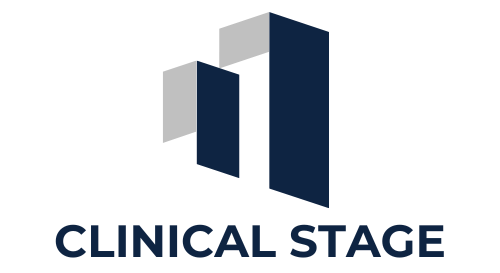Notable Labs' Precision Medicine Approach
Precision medicine is at the forefront of revolutionizing cancer treatment, offering tailored therapies that target the unique genetic and molecular profiles of individual patients. This approach enhances treatment efficacy while minimizing adverse effects, marking a significant shift from the traditional one-size-fits-all model. Notable Labs is a pioneering company in this field, leveraging its innovative Predictive Precision Medicine Platform (PPMP) to optimize cancer therapies. This blog focuses on Notable Labs' efforts to boost the efficacy of volasertib, a promising PLK-1 inhibitor, in treating Acute Myeloid Leukemia (AML).
The Predictive Precision Medicine Platform (PPMP)
The Predictive Precision Medicine Platform (PPMP) is a groundbreaking technology developed by Notable Labs, designed to enhance the efficacy of cancer treatments through precise patient response prediction. The PPMP integrates advanced analytics, machine learning, and high-throughput drug screening to evaluate how individual patients' cancer cells respond to various therapies. This comprehensive approach allows for the identification of the most effective treatment options tailored to each patient's unique cancer profile.
Explanation of the PPMP Technology
The PPMP operates by analyzing a patient’s genetic, molecular, and cellular data to predict their response to specific treatments. The platform uses a combination of experimental biology and computational methods to simulate how cancer cells react to different drugs. By performing high-throughput screening on patient-derived samples, the PPMP can generate detailed dose-response profiles, enabling the identification of the most promising therapeutic strategies.
Importance of Predicting Patient Response Before Treatment
Predicting patient response before initiating treatment is crucial for several reasons. First, it allows clinicians to select therapies that are most likely to be effective, avoiding the trial-and-error approach that can lead to delays in finding the right treatment. Second, it minimizes exposure to potentially ineffective or harmful treatments, reducing the risk of adverse effects and improving patient quality of life. Third, it helps in personalizing treatment plans, ensuring that each patient receives the most suitable therapy based on their unique cancer characteristics.
Benefits of PPMP in Streamlining Clinical Development and Improving Patient Outcome
The PPMP offers numerous benefits in streamlining clinical development and improving patient outcomes:
- Enhanced Patient Selection: By accurately predicting which patients will respond to specific treatments, the PPMP ensures that clinical trials enroll individuals who are most likely to benefit, increasing the likelihood of trial success.
- Reduced Trial Costs and Duration: The precision of the PPMP can lead to shorter and more efficient clinical trials, as it focuses on responsive patient populations, thereby reducing the number of participants needed and accelerating the timeline for obtaining conclusive results.
- Improved Treatment Efficacy: Personalized treatment plans based on PPMP predictions can significantly enhance treatment efficacy, leading to better patient outcomes and higher survival rates.
- Ethical Advantages: By reducing the exposure of patients to ineffective treatments, the PPMP upholds ethical standards in clinical research, ensuring that patient welfare is prioritized.
Overall, the PPMP represents a significant advancement in precision medicine, offering a powerful tool for optimizing cancer treatment and transforming clinical development processes. Notable Labs' application of this technology to boost the efficacy of volasertib in AML is a promising step towards more effective and personalized cancer therapies.
Volasertib: A Promising PLK-1 Inhibitor
Volasertib is a potent Polo-like kinase 1 (PLK-1) inhibitor developed by Boehringer Ingelheim, designed to target a key regulator of cell division. PLK-1 is essential for various stages of mitosis, and its inhibition can lead to cell cycle arrest and apoptosis, particularly in rapidly dividing cancer cells. Volasertib has shown considerable promise in preclinical studies and early-phase clinical trials, especially in hematologic malignancies like acute myeloid leukemia (AML).
Background on Volasertib and Its Development
Initially, Boehringer Ingelheim developed volasertib as part of their oncology pipeline, recognizing the potential of PLK-1 inhibitors in cancer therapy. Volasertib progressed through several phases of clinical development, demonstrating potent anti-tumor activity in preclinical models and promising results in early-phase clinical trials. However, despite these encouraging findings, the challenges of achieving statistically significant results in larger, more diverse patient populations led to a reevaluation of its development pathway.
Previous Clinical Trials
Previous clinical trials of volasertib included a range of studies focusing on its safety, tolerability, and efficacy as a monotherapy and in combination with other chemotherapeutic agents. One notable Phase II trial investigated volasertib in combination with low-dose cytarabine (LDAC) in elderly patients with previously untreated AML who were ineligible for intensive chemotherapy. The combination showed an improvement in overall survival compared to LDAC alone, highlighting its potential in AML treatment.
Despite these positive outcomes, the complexity of AML and the variability in patient responses presented significant challenges. This led Boehringer Ingelheim to seek strategic partners to further explore volasertib’s potential, ultimately leading to Notable Labs' involvement.
Notable Labs' Decision to In-License Volasertib
Notable Labs' decision to in-license volasertib was driven by their robust clinical experience and compelling data generated by their Predictive Precision Medicine Platform (PPMP). By leveraging the PPMP, Notable Labs identified volasertib as a promising candidate for targeted therapy in AML, particularly in patients with relapsed or refractory disease. The PPMP’s ability to predict patient responses with high accuracy provided a strategic advantage, allowing Notable Labs to select and optimize therapies with greater confidence.
Potential of Volasertib in Treating Relapsed/Refractory AML
Relapsed or refractory AML remains a significant challenge in oncology, with limited treatment options and poor prognosis. Volasertib offers a novel mechanism of action that targets a critical pathway in cancer cell division, making it a valuable addition to the therapeutic arsenal against AML. By integrating volasertib with the predictive capabilities of the PPMP, Notable Labs aims to enhance its efficacy and tailor its use to patients most likely to benefit from the treatment.
The combination of volasertib with other chemotherapeutic agents, such as decitabine, holds the potential to further improve outcomes by targeting AML through multiple pathways. Notable Labs' ongoing clinical trials and research initiatives are focused on validating these approaches, with the goal of providing new, effective treatments for patients with relapsed or refractory AML.
In summary, volasertib represents a promising PLK-1 inhibitor with the potential to significantly impact the treatment landscape for AML. Notable Labs' innovative use of the PPMP to in-license and develop volasertib underscores their commitment to advancing precision medicine and improving patient outcomes in challenging cancer types.
Addressing Unmet Needs in Relapsed/Refractory AML
Challenges in Treating Relapsed/Refractory AML
Acute Myeloid Leukemia (AML) is a complex and aggressive hematologic malignancy characterized by the rapid proliferation of immature myeloid cells in the bone marrow and blood. While initial treatment options for AML, including intensive chemotherapy and hematopoietic stem cell transplantation, can achieve remission in many patients, the disease often relapses. For patients with relapsed or refractory AML, treatment options are limited, and the prognosis is generally poor.
The challenges in treating relapsed/refractory AML are multifaceted. The disease is highly heterogeneous, with significant genetic and molecular variability between patients and even within the same patient over time. This variability makes it difficult to predict treatment responses and tailor therapies effectively. Additionally, relapsed AML cells often exhibit resistance to standard chemotherapies, further complicating treatment efforts. The toxicity associated with conventional treatments also limits their use, particularly in older patients or those with comorbidities.
Typical Treatment Response Rates and Survival Statistics
For patients with relapsed or refractory AML, the outlook is grim. Standard salvage chemotherapy regimens yield complete response rates of only 20-30%, with median overall survival typically ranging from 3 to 9 months. Many patients do not achieve remission with second-line therapies, and those who do often relapse again within a short period. The limited efficacy and high toxicity of available treatments underscore the urgent need for new, more effective therapeutic options.
Notable Labs' Goal to Improve These Outcomes Using the PPMP
Recognizing these challenges, Notable Labs is dedicated to improving outcomes for patients with relapsed or refractory AML through their Predictive Precision Medicine Platform (PPMP). The PPMP leverages advanced technologies, including artificial intelligence (AI) and machine learning, to analyze patient-specific genetic, molecular, and cellular data. By integrating this data, the platform can predict individual patient responses to various therapies, enabling a more personalized and targeted treatment approach.
Notable Labs aims to address the unmet needs in AML by utilizing the PPMP to identify and optimize treatment regimens for patients most likely to benefit. Their approach involves several key strategies:
- Identifying Predicted Responders: The PPMP can pinpoint patients who are predicted to respond favorably to specific therapies, such as volasertib. This targeted approach helps to maximize treatment efficacy while minimizing exposure to ineffective or toxic treatments.
- Tailoring Combination Therapies: By understanding the unique genetic and molecular landscape of each patient's AML, Notable Labs can develop combination therapies that target multiple pathways involved in disease progression. For example, combining volasertib with decitabine aims to enhance therapeutic efficacy through synergistic effects.
- Optimizing Dosing and Reducing Toxicity: The PPMP can help optimize dosing regimens based on individual patient profiles, potentially reducing treatment-related toxicity and improving overall tolerability.
- Streamlining Clinical Development: The predictive capabilities of the PPMP streamline the clinical development process by enabling more efficient trial designs and selective patient enrollment. This approach not only accelerates the development of new therapies but also increases the likelihood of successful clinical outcomes.
Through these efforts, Notable Labs is committed to transforming the treatment landscape for relapsed or refractory AML. By leveraging the power of predictive precision medicine, they aim to improve response rates, extend survival, and enhance the quality of life for patients facing this challenging disease.
Phase 2 Trial Design for Volasertib in Relapsed/Refractory AML
Overview of the VOLA-AML-201 Trial
The VOLA-AML-201 trial is a Phase 2 clinical study aimed at evaluating the efficacy and safety of volasertib in combination with decitabine for patients with relapsed or refractory acute myeloid leukemia (AML). This trial represents a significant advancement in precision medicine, leveraging Notable Labs' Predictive Precision Medicine Platform (PPMP) to identify patients who are most likely to benefit from the treatment. By integrating volasertib with decitabine, the trial seeks to enhance therapeutic outcomes through a synergistic approach.
Integration of Volasertib with Decitabine
Volasertib, a potent Polo-like kinase 1 (PLK-1) inhibitor, has shown promise in disrupting the cell division process, thereby inhibiting the proliferation of cancer cells. Decitabine, a hypomethylating agent, works by reactivating silenced genes that promote cell differentiation and apoptosis. The combination of these two drugs is designed to target AML cells more effectively than either agent alone. Decitabine's ability to sensitize cancer cells to volasertib's mechanism of action could result in a more profound anti-leukemic effect.
Use of Companion Diagnostic Tests to Identify Predicted Responders
The PPMP employs advanced companion diagnostic tests to analyze patient samples and generate detailed ex vivo dose-response profiles. These tests are crucial in identifying patients who are most likely to respond to the volasertib-decitabine combination. By using these diagnostics, the trial can selectively enroll patients who have the highest potential for positive outcomes, thus optimizing the effectiveness of the treatment and improving overall trial success rates.
Objectives and Methodology
Primary and Secondary Objectives of the Trial
The primary objective of the VOLA-AML-201 trial is to determine the overall response rate (ORR) of the volasertib and decitabine combination in patients with relapsed or refractory AML. Secondary objectives include assessing progression-free survival (PFS), overall survival (OS), and the safety and tolerability of the treatment regimen. These objectives will provide comprehensive insights into the efficacy and safety of the combination therapy, guiding future treatment protocols.
Flow Cytometry-Based Ex Vivo Tests for Dose-Response Profiles
Flow cytometry-based ex vivo tests play a pivotal role in the trial by generating precise dose-response profiles for each patient. These profiles help determine the optimal drug concentrations needed to achieve maximum therapeutic effect while minimizing toxicity. By analyzing how individual patient samples respond to varying doses of volasertib and decitabine, the trial can tailor treatments to the specific needs of each participant.
Use of Body Surface Area (BSA)-Based Dosing and Infection Prophylaxis
The trial employs body surface area (BSA)-based dosing to ensure that each patient receives a dosage that is appropriately scaled to their body size, thereby optimizing drug efficacy and reducing the risk of adverse effects. Additionally, infection prophylaxis measures are implemented to protect patients from treatment-related infections, a common complication in AML therapy. These measures include the use of prophylactic antibiotics and antifungals, as well as regular monitoring for signs of infection.
Dose Optimization and Selective Enrollment
Initial Dose Optimization Phase with Unselected AML Patients
The VOLA-AML-201 trial begins with an initial dose optimization phase involving unselected AML patients. This phase is designed to establish the safety and efficacy of various dosing regimens of volasertib and decitabine. By observing the effects of the treatment in a broad patient population, researchers can refine dosing parameters and identify the most effective and tolerable doses.
Transition to Selective Enrollment of PPMP-Predicted Responders
Following the dose optimization phase, the trial transitions to the selective enrollment of patients who are predicted to respond positively to the treatment based on PPMP diagnostics. This targeted approach ensures that the patients enrolled in the trial have the highest likelihood of benefiting from the therapy, thereby enhancing the overall efficacy and success rates of the trial.
Expected Outcomes and Benefits of This Targeted Approach
The targeted approach employed in the VOLA-AML-201 trial is expected to yield several key benefits:
- Improved Response Rates: By enrolling patients who are predicted to respond to the treatment, the trial is likely to achieve higher response rates compared to traditional trial designs.
- Enhanced Safety and Tolerability: Optimizing doses and selectively enrolling patients based on their predicted response profiles can reduce the incidence of adverse effects, improving the overall safety and tolerability of the treatment.
- Streamlined Development: The use of predictive diagnostics can streamline the clinical development process, reducing the time and resources required to bring effective therapies to market.
- Personalized Treatment: The trial exemplifies the move towards personalized medicine, where treatments are tailored to the individual characteristics of each patient, potentially leading to better outcomes and improved quality of life.
By integrating advanced diagnostic tools and a personalized approach, the VOLA-AML-201 trial aims to set a new standard in the treatment of relapsed or refractory AML, ultimately improving patient outcomes and advancing the field of precision medicine.
Previous Successes and Future Potential of the PPMP
Highlighting the Success of PPMP in Predicting Outcomes for Fosciclopirox
Notable Labs' Predictive Precision Medicine Platform (PPMP) has already demonstrated significant success in the field of precision medicine, particularly in its ability to predict patient responses to various treatments. One of the most notable achievements of the PPMP is its role in predicting outcomes for fosciclopirox, an investigational drug for cancer treatment. The platform's advanced analytics and machine learning algorithms were able to identify patient populations that were most likely to respond favorably to fosciclopirox. This predictive accuracy not only validated the efficacy of the drug in these patients but also provided a robust framework for its further development.
Reduction of Patient Cohort Sizes and Validation of the PPMP-Guided Development Strategy
One of the significant advantages of using the PPMP is its ability to reduce the size of patient cohorts required for clinical trials. Traditional drug development often involves large, diverse patient populations to achieve statistically significant results. However, by leveraging the predictive capabilities of the PPMP, Notable Labs can focus on smaller, more targeted groups of patients who are predicted to respond to the treatment.
This approach not only accelerates the clinical trial process but also reduces costs and minimizes the exposure of patients to potentially ineffective therapies. The success of the PPMP in guiding the development of fosciclopirox and other treatments has validated this strategy, demonstrating its potential to streamline drug development and bring effective therapies to market more quickly.
Broader Applications of PPMP in Other Cancer Treatments
The success of the PPMP is not limited to a single drug or cancer type. The platform's ability to analyze genetic, molecular, and tumor profiles to predict treatment responses has broad applications across various cancer treatments. By expanding the use of the PPMP to other drugs and cancer types, Notable Labs aims to revolutionize the approach to cancer therapy. The platform's potential applications include:
- Combination Therapies: Identifying optimal combinations of drugs that work synergistically to enhance treatment efficacy.
- Rare Cancers: Developing targeted therapies for rare cancers that often lack effective treatment options due to limited research and patient populations.
- Immunotherapies: Enhancing the effectiveness of immunotherapies by identifying patients who are most likely to benefit from these treatments based on their immune profiles.
- Drug Repurposing: Utilizing the platform to identify new applications for existing drugs, thereby expanding treatment options and accelerating the availability of effective therapies.
The broader applications of the PPMP underscore its potential to transform the landscape of cancer treatment. By continuing to refine and expand the platform, Notable Labs is poised to make significant advancements in precision medicine, offering new hope to patients and setting a new standard for personalized cancer care.
The Role of AI and Machine Learning in PPMP
Integration of Advanced Analytics and AI in PPMP
Notable Labs' Predictive Precision Medicine Platform (PPMP) is at the forefront of integrating advanced analytics and artificial intelligence (AI) to enhance the precision and effectiveness of cancer treatments. The platform leverages state-of-the-art machine learning algorithms to analyze vast amounts of data generated from genetic, molecular, and tumor profiles of patients. By incorporating these advanced technologies, the PPMP can identify patterns and correlations that might be missed through traditional analysis methods. This integration of AI enables the platform to make highly accurate predictions about patient responses to specific treatments, thereby personalizing and optimizing therapy plans.
Advantages of AI in Navigating Complex Datasets and Predicting Treatment Responses
The complexity of genetic and molecular data in cancer treatment presents a significant challenge. Traditional methods of data analysis often fall short in handling the sheer volume and intricacy of this information. AI and machine learning offer powerful tools to overcome these challenges by:
- Handling Large Data Volumes: AI algorithms can process and analyze large datasets rapidly, providing insights that would be time-consuming and difficult to achieve manually.
- Identifying Hidden Patterns: Machine learning models can uncover subtle patterns and relationships within the data that are not apparent through conventional analysis. This capability is crucial for understanding how different genetic and molecular factors influence treatment responses.
- Continuous Learning and Improvement: AI systems can continuously learn and improve as they are exposed to more data, enhancing their predictive accuracy over time. This adaptive learning process ensures that the PPMP remains at the cutting edge of precision medicine.
- Personalized Treatment Predictions: By integrating data from multiple sources, including genetic sequencing, molecular profiling, and clinical outcomes, AI can predict how individual patients will respond to various treatments. This personalized approach increases the likelihood of successful outcomes and reduces the risk of adverse effects.
Future Applications and Potential of AI-Driven Precision Medicine
The future of AI-driven precision medicine is bright, with numerous potential applications that promise to transform healthcare:
- Drug Discovery and Development: AI can accelerate the discovery of new drugs by identifying promising compounds and predicting their efficacy and safety profiles. This capability can significantly reduce the time and cost associated with bringing new treatments to market.
- Real-Time Treatment Adjustments: AI can enable real-time monitoring and adjustment of treatment plans based on ongoing patient data. This dynamic approach ensures that therapies remain effective and responsive to changes in the patient's condition.
- Predictive Biomarkers: The identification of novel biomarkers through AI analysis can lead to the development of more targeted and effective therapies. These biomarkers can also help stratify patients into subgroups that are more likely to benefit from specific treatments.
- Global Collaboration and Data Sharing: AI can facilitate global collaboration by enabling the sharing and analysis of large, diverse datasets across different research institutions and healthcare providers. This collaborative approach can accelerate the development of precision medicine on a global scale.
- Preventive Medicine: Beyond treatment, AI-driven precision medicine has the potential to predict and prevent diseases before they manifest. By analyzing genetic and molecular data, AI can identify individuals at high risk for certain conditions and recommend preventive measures to mitigate those risks.
The integration of AI and machine learning into the PPMP represents a significant advancement in the field of precision medicine. Notable Labs' innovative approach is paving the way for more personalized, effective, and efficient cancer treatments. As AI technology continues to evolve, its applications in precision medicine will expand, offering new opportunities to improve patient outcomes and revolutionize healthcare.
Implications for Drug Development and Patient Care
Impact of PPMP on Clinical Trial Design and Execution
The Predictive Precision Medicine Platform (PPMP) significantly enhances the design and execution of clinical trials. Traditional clinical trials often struggle with lengthy timelines, high costs, and difficulties in recruiting suitable patient cohorts. PPMP addresses these challenges through its predictive capabilities, allowing for more efficient and targeted clinical trials.
- Efficient Patient Selection: By predicting which patients are most likely to respond to specific treatments, PPMP enables the selective enrollment of candidates, ensuring that only those who are genetically and molecularly predisposed to benefit are included in the trial. This targeted approach increases the likelihood of successful outcomes and reduces the overall number of participants needed.
- Adaptive Trial Designs: PPMP supports adaptive trial designs, which allow modifications to the trial procedures based on interim results. This flexibility can lead to faster adjustments in dosing regimens, improved safety protocols, and more accurate assessments of treatment efficacy.
- Streamlined Data Collection: The integration of AI and advanced analytics facilitates real-time monitoring and analysis of clinical data. This capability ensures that trials can be adjusted promptly in response to emerging trends, enhancing both the speed and accuracy of data collection.
Benefits for Patients
The implementation of PPMP in clinical trials and treatment plans offers substantial benefits for patients:
- Improved Outcomes: By tailoring treatments to the individual patient's genetic and molecular profile, PPMP significantly increases the likelihood of positive treatment outcomes. Personalized therapy plans are more effective and better tolerated, leading to higher rates of remission and survival.
- Reduced Adverse Effects: Precision medicine minimizes exposure to ineffective therapies, thereby reducing the risk of adverse effects. Patients receive treatments that are specifically designed to target their unique cancer characteristics, decreasing the likelihood of harmful side effects and improving overall quality of life.
- Enhanced Access to Cutting-Edge Therapies: Through more efficient clinical trials, PPMP accelerates the development and approval of new therapies. Patients can gain access to the latest treatments sooner, benefiting from the most advanced care available.
Advantages for Pharmaceutical Companies
Pharmaceutical companies also stand to gain significantly from the use of PPMP:
- Reduced Risk: By predicting patient responses accurately, PPMP decreases the risk of clinical trial failures. Companies can invest resources more confidently, knowing that the selected patient cohorts are more likely to respond positively to the treatments under investigation.
- Shortened Development Timelines: The efficiency gained from targeted patient selection and adaptive trial designs translates into shorter development timelines. This acceleration allows companies to bring new drugs to market more quickly, benefiting both the company and the patients in need.
- Cost Savings: PPMP's predictive capabilities help optimize trial designs, reducing the number of participants and the duration of the trials. This optimization results in significant cost savings, freeing up resources for further research and development initiatives.
- Enhanced Regulatory Compliance: The precision and accuracy of data generated by PPMP facilitate smoother interactions with regulatory agencies. The platform's ability to provide robust evidence of treatment efficacy and safety supports more streamlined approval processes.
The Predictive Precision Medicine Platform (PPMP) developed by Notable Labs is transforming the landscape of drug development and patient care. By leveraging advanced AI and machine learning technologies, PPMP enhances clinical trial design, improves patient outcomes, and offers significant advantages for pharmaceutical companies. The integration of precision medicine into clinical practice promises a future where treatments are tailored to individual patient needs, leading to more effective therapies, fewer adverse effects, and a more efficient healthcare system overall.
Notable Labs' innovative approach exemplifies the potential of precision medicine to revolutionize cancer care and beyond. As the platform continues to evolve, its impact on drug development and patient treatment will only grow, heralding a new era of personalized healthcare that benefits patients worldwide.
Recap of Notable Labs’ Precision Medicine Approach
Notable Labs is at the forefront of enhancing the efficacy of volasertib in treating Acute Myeloid Leukemia (AML) through its innovative Predictive Precision Medicine Platform (PPMP). By leveraging advanced AI and machine learning, the PPMP accurately predicts patient responses, ensuring that only those likely to benefit are selected for treatment. This targeted approach not only optimizes clinical trial design but also significantly improves patient outcomes by tailoring therapies to individual genetic and molecular profiles.
The broader vision of Notable Labs extends beyond just improving the efficacy of volasertib. Through precision medicine, they aim to transform the landscape of cancer care, making treatments more personalized, effective, and accessible. The success of the PPMP in guiding the development and administration of volasertib sets a precedent for its application across various other cancer treatments, promising a future where each patient receives the most suitable therapy based on their unique characteristics.
The anticipated impact of the PPMP on future drug development and patient treatment is profound. By reducing the risk, time, and cost associated with clinical trials, the platform accelerates the development of new therapies and their availability to patients in need. Moreover, the ability to predict treatment responses accurately ensures that patients receive the most effective therapies with minimal adverse effects, improving their overall quality of life.
In summary, Notable Labs' pioneering work in AI-driven precision medicine not only enhances the efficacy of volasertib in AML but also sets the stage for a new era of personalized cancer care. Their commitment to innovation and patient-centric approaches positions them as a driving force in the fight against cancer, with the potential to revolutionize healthcare and improve countless lives worldwide.










